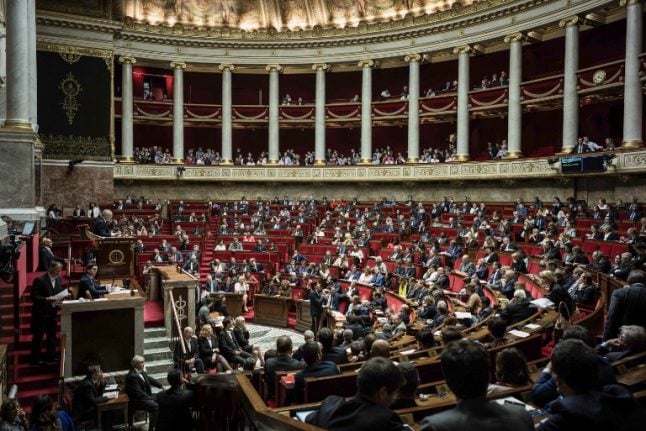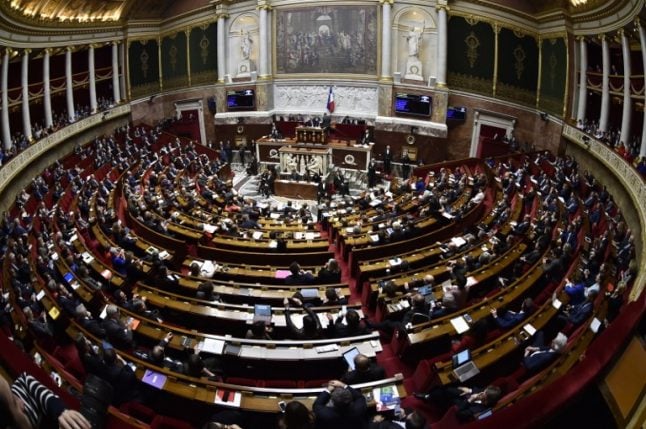France's parliament has banned lawmakers from wearing any religious symbols under a new “neutral” dress code, an extension of the country's strict secular rules that is seen as going too far by some critics.
Under the change approved late Wednesday, members of the National Assembly must avoid “the wearing of conspicuous religious symbols, uniforms, logos or commercial messages or political slogans.”

In 1981 the then Socialist government imposed a “shirt and tie” rule for all male MPs with the chamber's doormen carrying spare ties for anyone who turned up without one.
But in July last year the rules were relaxed, partly due to newly elected MPs from the far left France Insoumise party refusing to stick to the unofficial rule, notably François Ruffin (see top picture).
But Ruffin then went a step too far it seems when during one session he took off his jumper to reveal a football shirt from a local team to make a point about about the taxing of football transfers between big clubs (see tweet below)

Taxe sur les transferts de sportifs : @Francois_Ruffin enlève son pull et s'exprime à la tribune de l'Assemblée nationale avec… un maillot de foot. #DirectAN pic.twitter.com/uBQ2XG41CH
— LCP (@LCP) December 7, 2017
Ruffin was called to order and fined a quarter of his monthly salary for the stunt.
There will be no return to the strict “shirt and tie” rule but the new dress code will seek to outlaw the wearing of anything that expresses an opinion, such as a T-shirt with a political or religious slogan on it, as well as any kind of uniform or professional clothing or indeed anything that bears advertising.
Any expression made in the chamber must be oral, believes François de Rugy, the president of the National Assembly.
Some 20th-century lawmakers included priests in religious garb, such as Henri Groues, better known as Abbe Pierre, and several Christian faith leaders were critical of the new restrictions on Wednesday.
The head of the Protestant Federation of France, Francois Clavairoly, said the change had been made “in the spirit of obsessive radical secularism.”
The speaker of the parliament, Francois de Rugy, defended the changes, saying they were in line with a 2004 law that banned schoolchildren and
teachers from wearing conspicuous religious symbols.
That was seen by critics as penalising Muslims in particular by banning headscarves and veils, but Jewish kippas were also covered by the regulations.
“We're adopting a framework and limits… to avoid any sort of provocation,” de Rugy said.
Lawmakers will be allowed to deviate from the new dress rules if they can justify their appearance as traditional clothing, however.
Moetai Brotherson, an MP from the French Pacific island of Tahiti, will be authorised to continue wearing his lavalava, a traditional Polynesian skirt.



 Please whitelist us to continue reading.
Please whitelist us to continue reading.